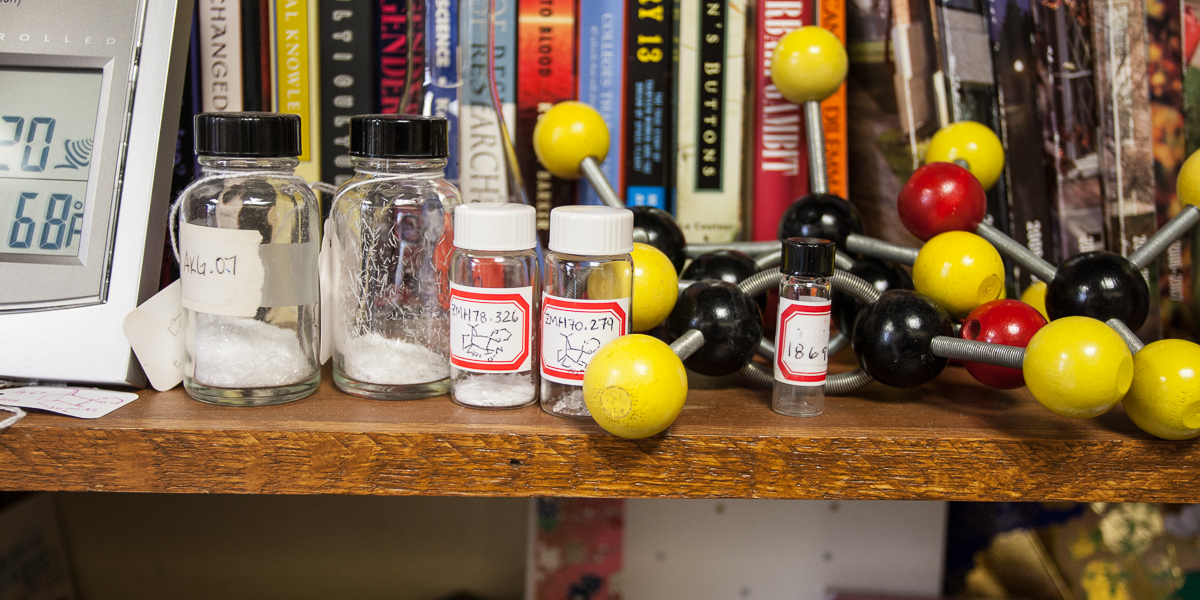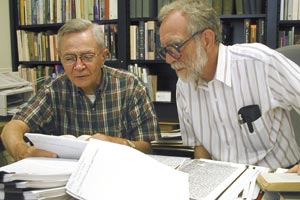

Venture Boldly


 In the podcast series, The Real Issue - The Real Debates, Rodney Davis and Douglas Wilson, co-directors of the Lincoln Studies Center at Knox College, discuss each of the historic Lincoln-Douglas Debates.
In the podcast series, The Real Issue - The Real Debates, Rodney Davis and Douglas Wilson, co-directors of the Lincoln Studies Center at Knox College, discuss each of the historic Lincoln-Douglas Debates.
Their book, The Lincoln Douglas Debates: The Lincoln Studies Center Edition, is the first critical edition of the debate texts ever published. Drawing on their expertise and decades of research on Lincoln and Illinois history, they examine all the existing texts and bring us as close as possible to what Abraham Lincoln and Stephen Douglas actually said in the most important series of debates in American history.
The Lincoln-Douglas Debate podcasts are each less than ten minutes in length. They were produced by Peter Bailley, of the Office of Communications. The music is an arrangement of "Hunters' Chorus," from The Rose of Erin by Julius Benedict, from a 1974 Library of Congress recording, Band Music of the Civil War Era.
The debates between Stephen Douglas and Abraham Lincoln began August 21, 1858, in Ottawa, in north-central Illinois. Douglas opened with a series of questions about slavery that showcased his skill as an aggressive debater and put Lincoln on the defensive.
The second debate was held in Freeport, in heavily Republican northwest Illinois. Here, ignoring the ruling handed down in the Dred Scott Decision, Douglas claimed that voters could keep slavery out of a national territory if they chose — a position, called the Freeport Doctrine, that historians believe later cost Douglas the Presidency.
The third debate was in Jonesboro and marked a new phase in the series. Even though the area was Democratic, Douglas was not popular. Lincoln, meanwhile, had nothing to lose by being aggressive, and was able to gain confidence in responding to Douglas's attacks.
Davis and Wilson place the fourth debate at Charleston in the same phase as the prior one at Jonesboro. Douglas repeated his charge that Lincoln supported "negro equality." While Lincoln acknowledged inequality, he also argued that belief in inequality does not justify slavery.
Davis and Wilson see the Galesburg debate on October 7 as a turning point in the series, when Lincoln began to make an issue of Douglas's position on the morality of slavery. It was possibly the best-attended debate, with an estimated audience of more than 10,000 at Old Main on the Knox College campus.
A week after the Galesburg debate, Douglas at Quincy repeated his position that "each state has a right to do as it pleases on the subject of slavery." Lincoln combined moral and political arguments, when he stated that slavery can be ended "when all men who believe that slavery is wrong [will] stand and act with us..."
At the seventh and final debate, Douglas, who had visibly weakened in the series, repeated his familiar race-baiting accusations, while Lincoln worked toward a conclusion that framed the argument over slavery in terms of "the eternal struggle between . . . right and wrong."
In this concluding Lincoln-Douglas Debate podcast, Rodney Davis and Douglas Wilson talk about the debates, and how they edited the debate texts for their book The Lincoln-Douglas Debates: The Lincoln Studies Center Edition.
130+
species
of native plants and animals can be found at Green Oaks Biological Field Station